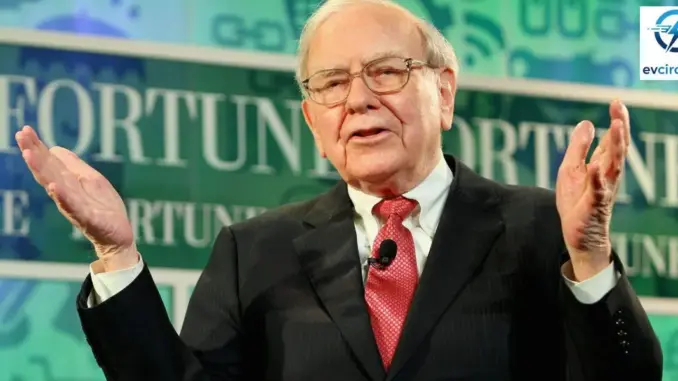
For most of the past two decades, Chinese EV-maker BYD could point to the fact that famed investor Warren Buffett held a stake in the company. That is no longer true, according to a recent filing from Berkshire Hathaway.
Berkshire’s investment in the Tesla rival goes back to 2008, when it said in its annual report it owned a 10% stake in an “amazing Chinese company” called BYD, which was developing the vehicle of “the future … a new plug-in electric car.”
However, a 10-Q for Berkshire’s energy unit filed for the period ending June 30, 2025, indicates the Buffett-led firm has trimmed its holding to zero.
The filing, reviewed by Fortune, states that in December 2024 Berkshire’s stake in BYD was valued at $415m. By June 30, that stake had been reduced to nil.
The BYD divestment is part of a broader shrinkage in the energy giant’s investment portfolio, which fell to $950m from $1.3 billion six months earlier. That said, there was one asset class where Buffett and his team were buying: Treasury bills. Holdings of that asset rose from zero to $39 million between December and June. BYD’s share price dipped on the news. Its Hong Kong dollar-listed shares (more liquid than their yuan-traded counterparts) fell 3.35% in trading today, standing at 109 HKD versus their 2025 peak of 155 HKD hit in May, according to Bloomberg.
The backing from one of America’s most renowned investors had been a badge of honor for BYD, especially because Berkshire to date has steered clear of investing in its main rival, Elon Musk’s Tesla.
Even with that investment now scaled back, Li Yunfei, a BYD general manager, praised Buffett and his company. Posting on Chinese social platform Weibo, Li said: “In August 2022, Berkshire began trimming its holdings of the shares it bought in 2008, and its stake fell below 5% in June last year.”
“Stock investing — if you buy, you can sell, which is normal! Thanks to Munger and Buffett for recognizing BYD! Thank you for your investment, support and companionship over the past 17 years! To long-termism!”
BYD did not respond to Fortune’s request for comment but referred other media outlets to Li’s statement.
Why sell?
As Li notes, both buying and selling are routine in stock investing. One possible reason Berkshire sold is simply that it believes BYD’s share price has reached its limit. After all, when Berkshire invested in 2008 the price was between 3 and 8 HKD, according to CNBC records.
Thus Berkshire has already realized a massive return on its initial stake, particularly having sold in the early part of 2025 when prices were relatively high.
The 10-Q also offered some insight into Berkshire’s possible motivation. It states: “BHE [Berkshire Hathaway Energy] and Other’s earnings decreased $317 million for the second quarter and $65 million for the first six months of 2025 compared to 2024.
“The changes included an unfavorable comparative change of $257 million in the second quarter and $62 million for the first six months of 2025 and lower net interest and dividend income of $44 million for the second quarter and $58 million for the first six months of 2025, each related to the Company’s investment in BYD Company Limited, lower federal income tax credits … and unfavorable consolidated income tax adjustments, partially offset by lower interest expense and higher federal income tax credits recognized on a consolidated basis for the first six months of 2025.”
BYD’s profits are also receding. In its half-year 2025 results, the company reported net profits attributable to shareholders of the parent of 15.5 billion yuan, after reporting Q1 net profits attributable to shareholders of 9.15 billion. The gap between the two is about 6.35 billion yuan for the second quarter — roughly a 30% decline from a year earlier, according to LSEG data. In its half-year report, BYD said it was operating in an “intense market game [of] increased price competition, and frequent occurrence of excessive marketing, which had exerted an adverse periodic impact on the development of the industry.”
This high-stakes contest is a dynamic Buffett is well acquainted with. At Berkshire Hathaway’s 2023 annual meeting, Buffett said: “Charlie [Munger] and I for long have felt that the auto industry is just too tough … It’s just a business where you’ve got a lot of worldwide competitors, they’re not going to go away. And it looks like there are winners at any given time, but it doesn’t get you a permanent place.”
Beyond the shifting profit picture, BYD is also navigating a new tariff era. Oddly, Trump’s trade policy has in some ways benefited BYD because it does not sell passenger vehicles in the U.S., unlike some other EV rivals that depend on the American market.
However, it does sell various vehicles in Mexico, a market that had been identified for notable growth. Earlier this month Mexico announced plans to raise tariffs on Chinese cars by 50%, a move some analysts viewed as “placating” the country’s northern neighbor — and potentially closing a loophole in President Trump’s simmering trade conflict with China.
Beijing addressed the matter directly, saying earlier this month: “China advocates a universally-beneficial and inclusive economic globalization, opposes all forms of unilateralism, protectionism and discriminatory and exclusive measures, and firmly rejects moves that are taken under coercion to constrain China or undermine China’s legitimate rights and interests under any pretext.” Foreign ministry spokesperson Lin Jian added in the briefing: “China attaches great importance to its relations with Mexico and hopes that Mexico will work with China to jointly advance world economic recovery and the development of global trade.”
Auto and lifestyle writer who loves simplifying complex topics into easy-to-understand insights.

Leave a Reply